When Worlds Collide. (And Crash. And Burn.)
You may remember me telling you about my recent travels to Tel Aviv and Berlin: the concept of Utopia figuring into both events, even though dystopia was more front-and-center at least in my own case. You may also remember, a bit further back, campfire tales of my journey to Bulgaria. I made new and wondrous friends on both occasions.
A few weeks back, those two worlds came together to talk about Doomsday.
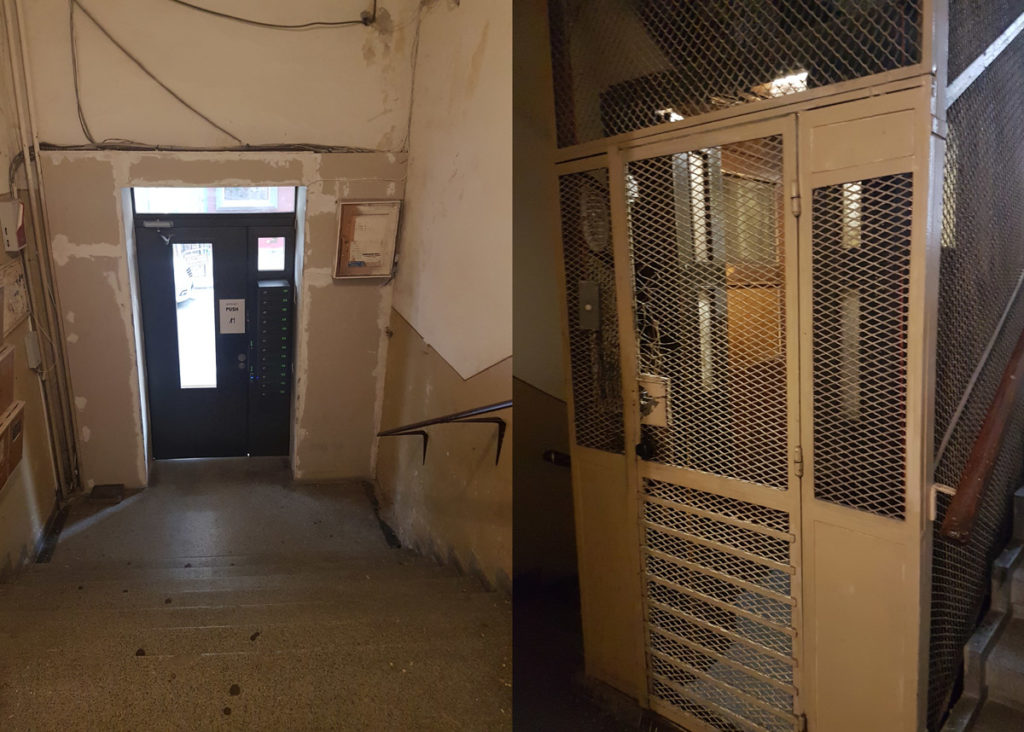
The foyer of my accommodations in Sofia. Contrary to what some haters will tell you, those gashes in the elevator grille are not due to stabbing weapons. In fact I’m pretty sure I saw teeth marks on the grille.
It’s not news to any of you that Doomsday is kind of my shtick— not because I like apocalypse porn (believe it or not), but because any SF extrapolation into the near future is pretty much locked into a disaster scenario, if it wants to lay claim to any kind of plausibility. What has taken me by surprise, a little, is how little I’ve been talking about science fiction lately, compared to real-world environmental issues. It’s pretty much what I was on about in Tel Aviv and Berlin; my April talk in Hungary was called “Delusional Optimism at the End of the World”; back in October I was at the Toronto Public Library hectoring people about why Humanity keeps fucking up the environment and what to do about it. Just last week I was in Montreal doing a podcast which kicked off with the question “Just how fucked are we?” Thinking back, I haven’t been to a proper SF event in over a year— but in that same period I’ve been to half a dozen cities to talk about environmental apocalypse. Why, it’s almost as though I don’t write science fiction at all any more.
(I’m not happy about this, by the way. I’d much rather experiment with my own future scenarios than roll my eyes at the delusional optimism of “hopepunk” and its related mindsets. But a week never seems to pass these days without some august authority admitting that things are even worse than we thought they were during last week’s Things Are Worse announcement. The bulletins are coming so thick and fast that— while not so long ago I would have dedicated a blog post to each new signpost— I’ve now had to settle for simply adding to an ever-growing list of “worse than the worst-case-scenario” links to that sidebar over on the right.)
All of which should make it clear just why, when Lubo Baburov asked if I’d be interested in a return visit to Sofia to participate in a panel about “scientific dystopias”, it was a no-brainer. Admittedly it was more of a brainer when he asked who should fill the two vacant slots on that panel, but that was because I had three names on the tip of my tongue and I couldn’t decide between them. I threw them all at Lubo and let him make the cut. Which is how I ended up back in Bulgaria on the 10th of November, sharing a stage with Gili Ron, Uri Aviv, and Martin Moder, talking under a banner lamenting “So Many Doomsdays, So Little Time”.
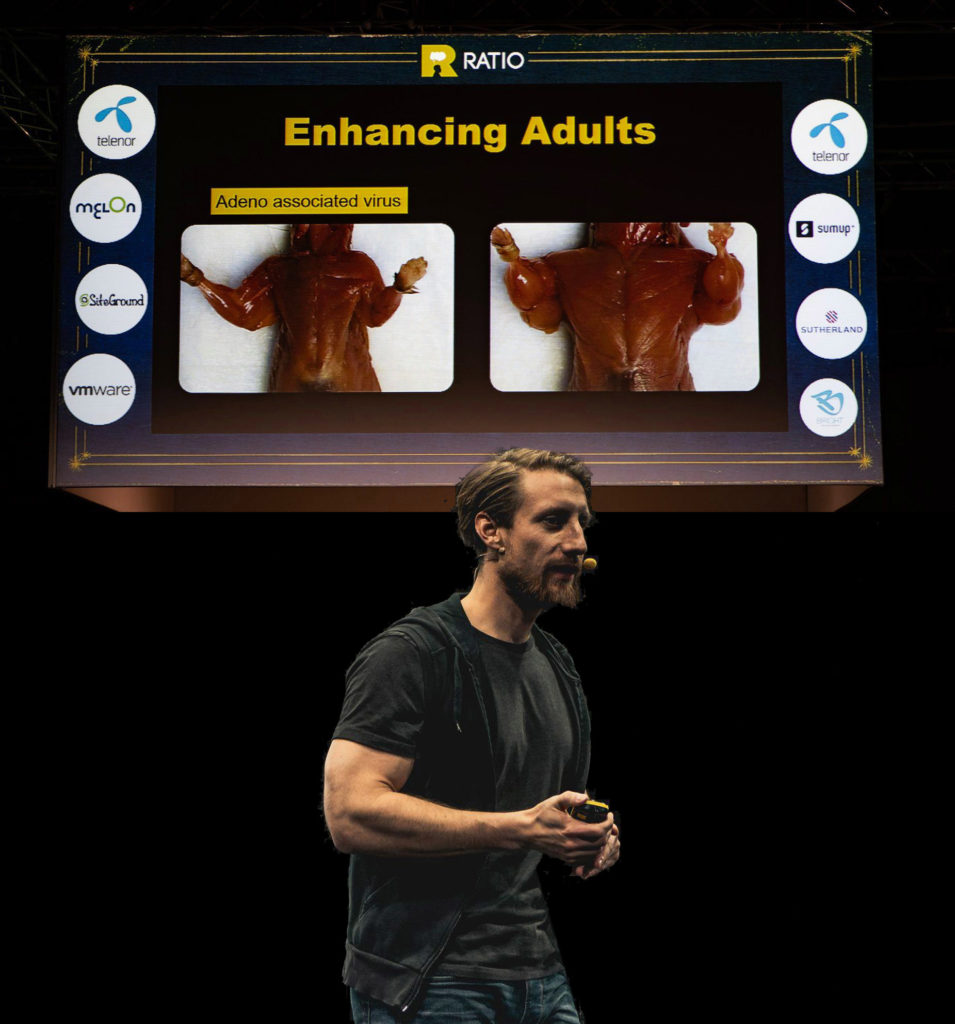
Look what happens when you knock out one gene in a mouse. Now look at Martin. Are you seriously going to tell me he didn’t use that treatment on himself?
We weren’t keynote. The only one of us who gave a standalone talk was Martin— a geneticist by trade— who blew our minds for an hour on the subject of Human Optimization. (Given the man’s physique, I’m pretty sure his bit on myostatin knockout genes was based on first-hand experience.) Volcanologist-turned-science-journalist Robin Andrews treated us to a scattershot tour of weirdness in our local solar neighborhood, in a talk aptly titled “The Solar System is a Freak Show”. And Jonathan Pettitt’s talk “May Contain Neanderthal DNA” veered from Mitochondrial Eve to the relationship between White Supremacy and Milk-Drinking.
Ratio has grown since 2017, when I reported that it was one of the most consummately professional events I’d ever attended. If anything, this year was even more consummate— especially remarkable given that the audience had grown from a very-respectable 500ish back then to a sold-out 1800 this year. (Even more impressive, Ratio is only one of the fifty-odd events these guys put on every year.) The layout of the arena has changed, from the conventional stage-at-the-front to a central ring in the heart of the audience, with four cloned screens looming overhead to keep everyone on the same page. The arrangement is somehow both grander in scale and more intimate, kind of halfway between a World Wrestling Federation event and a fireside chat.
Ratio’s pool of corporate sponsors has deepened, too. I’m pretty sure the European Space Agency wasn’t on board back in ’17. And if Johnnie Walker was handing out complimentary ginger-based whiskey cocktails two years ago, I totally missed it.
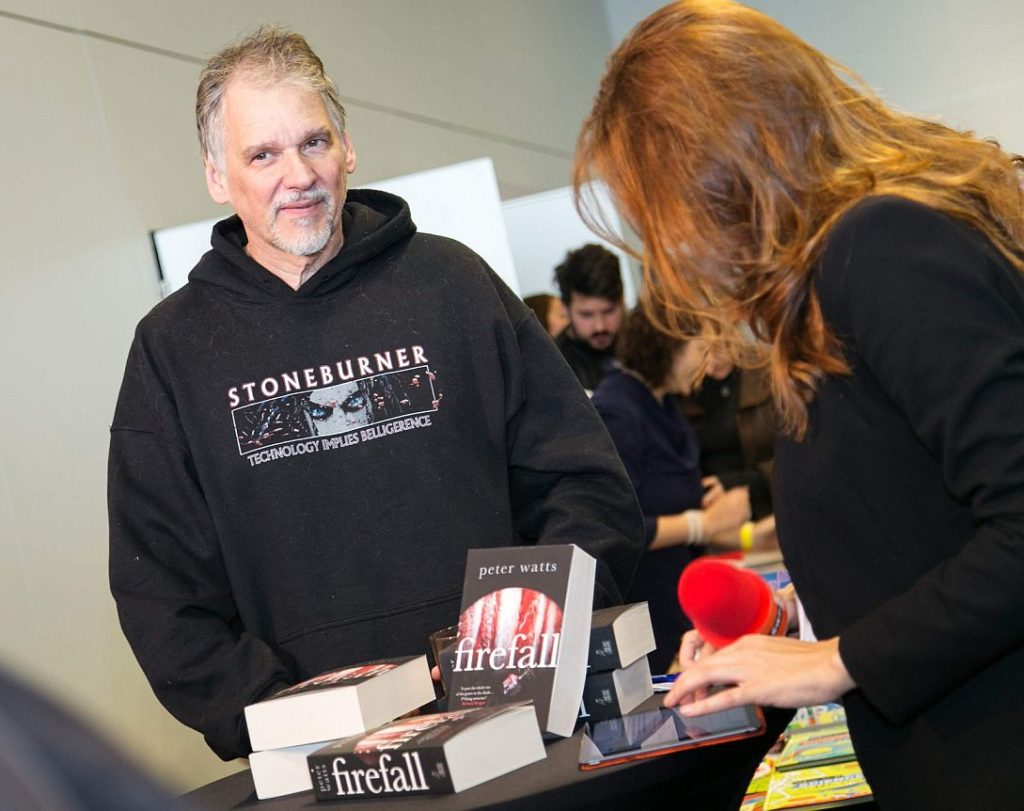
Me waiting warily behind an impromptu pile of Firefalls the TV people put there for the interview. It was not my idea.
All the talks are now given in English, in deference to an increasingly international audience (if you couldn’t attend in person, tickets could be purchased for live-streaming). Which made it even more of a pain that I couldn’t catch all of every talk, having been scheduled for the occasional interview (in which I got blindsided by questions like Today is the 50th anniversary of the collapse of The Wall; what “walls” do you think we’re building here in the 21rst Century?)— not to mention intermittent frenzied Gchatting with the BUG while, back in Toronto, the ChiZine Fiefdom imploded in realtime1 (an event in which I am proud to say the BUG played a significant, albeit behind-the-scenes, role).
Anyway. “So Many Doomsdays” went as well as one could expect when one’s goal is to convince people that we’re so inherently wired for hope that no matter how bad we think things are, the reality is worse— and that Optimism (far from being the “radical” option, as some would have it) is so deeply-wired as the default that it threatens our survival. Apparently the relentless hectoring of the Hope Police has been wearing thin—in Bulgaria, at least— judging by the folks who approached me afterward to thank me for the lack of sugar-coating.
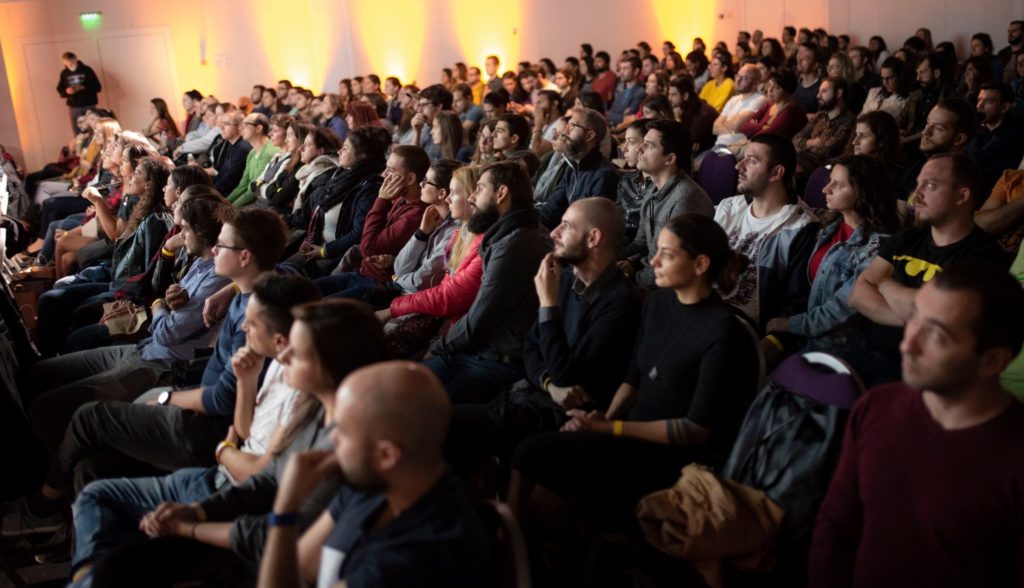
Rapt. If you look closely you can see me texting the BUG to find out who #MeToo’d Chizine in the 15 minutes since I last checked.
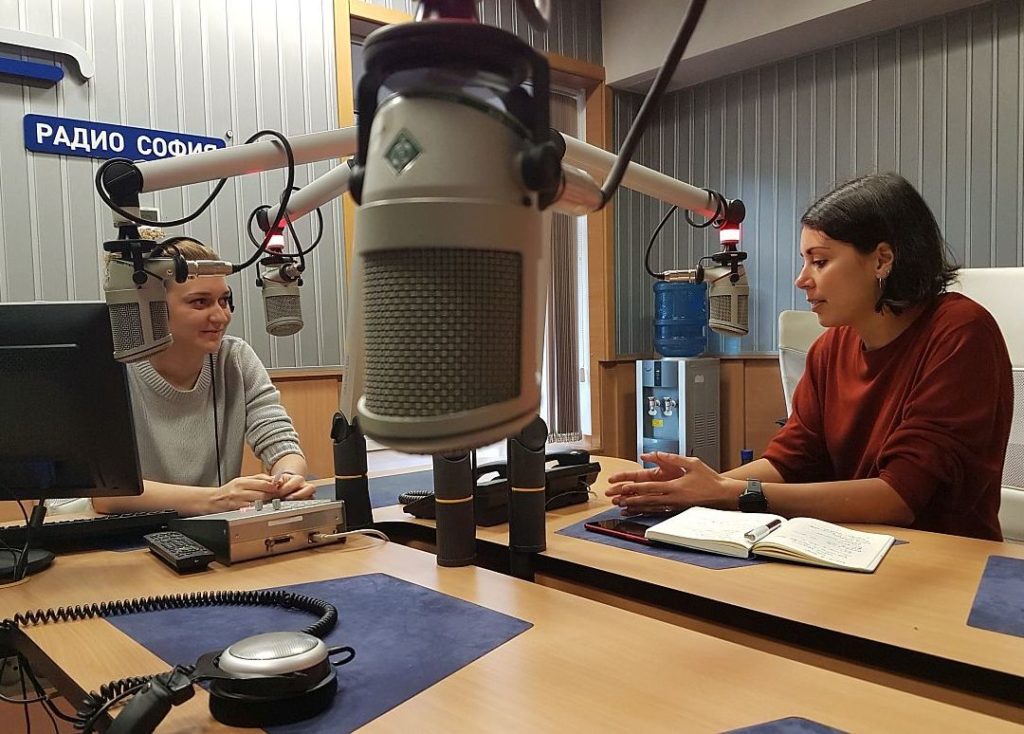
After I suggested that the best way to fight climate change might involve First-worlders killing their children, the interviewer from Bulgarian National Radio spent the rest of our slot chatting with Vassy.
Ironically, it gave me hope. Even if the first question directed at me during the day’s closing Q&A was “Does anything bring you joy in life?”
Actually, a number of things do. Ratio 2019 was one of them— in particular, the fact that way back in 2017, a fan who came to Ratio to hear me talk ended up talking to one of Ratio’s founders instead. And the next time I blew into town, Snezhana Yaneva and Lubo Baburov had me over to their place where, wearing their complementary Bojack Horseman t-shirts, they introduced me to the pleasures of “Ginger Beard”.
Their romance is unlikely to save the world, but it’s a happy ending nonetheless and I am pleased to have acted, in some small way, as its catalyst.
These days, you take what you can get.
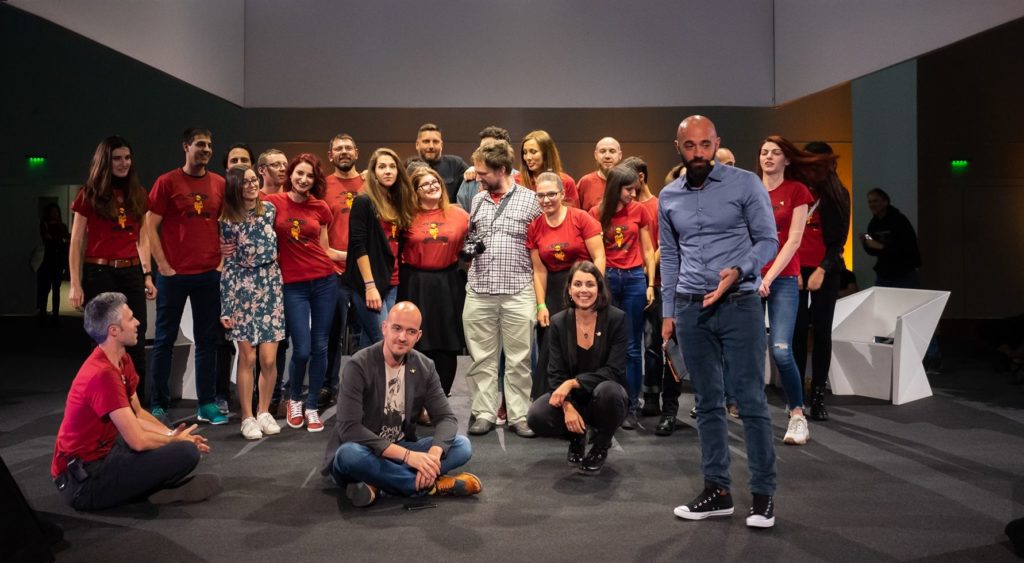
These are the people who did it all. They are goddamn superheroes (albeit more in the vein of Superman than, say, The Seven or Dr. Manhattan).
1 If you have to ask, it’ll take too long to explain.
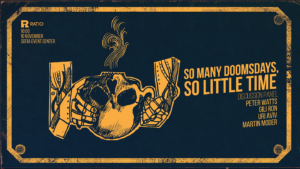
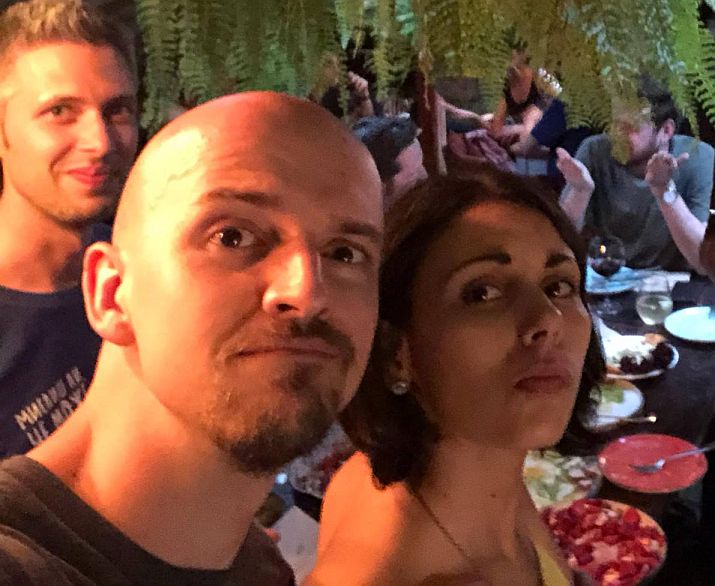
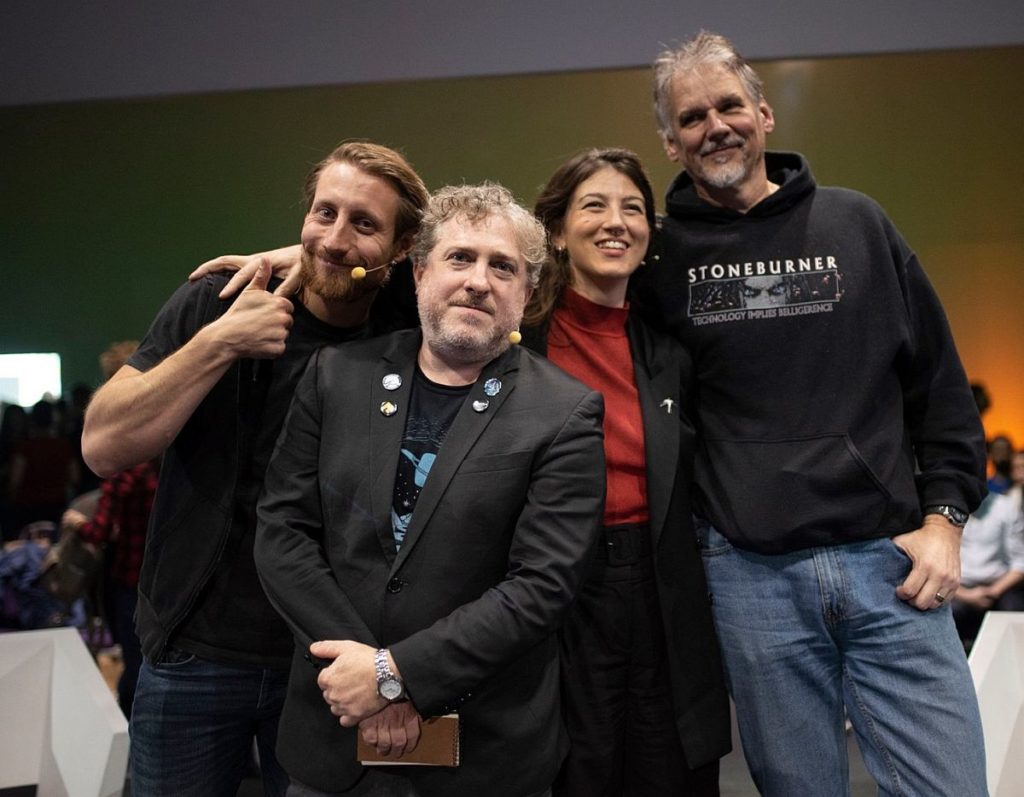
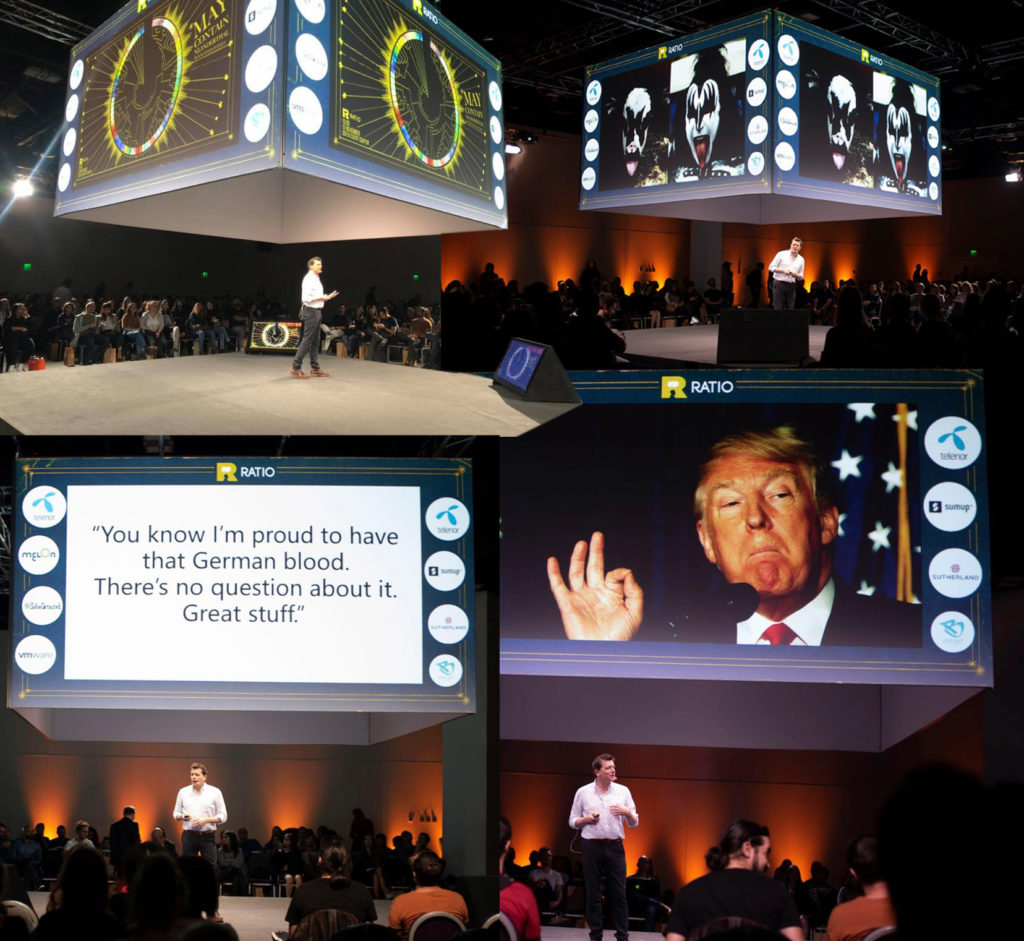
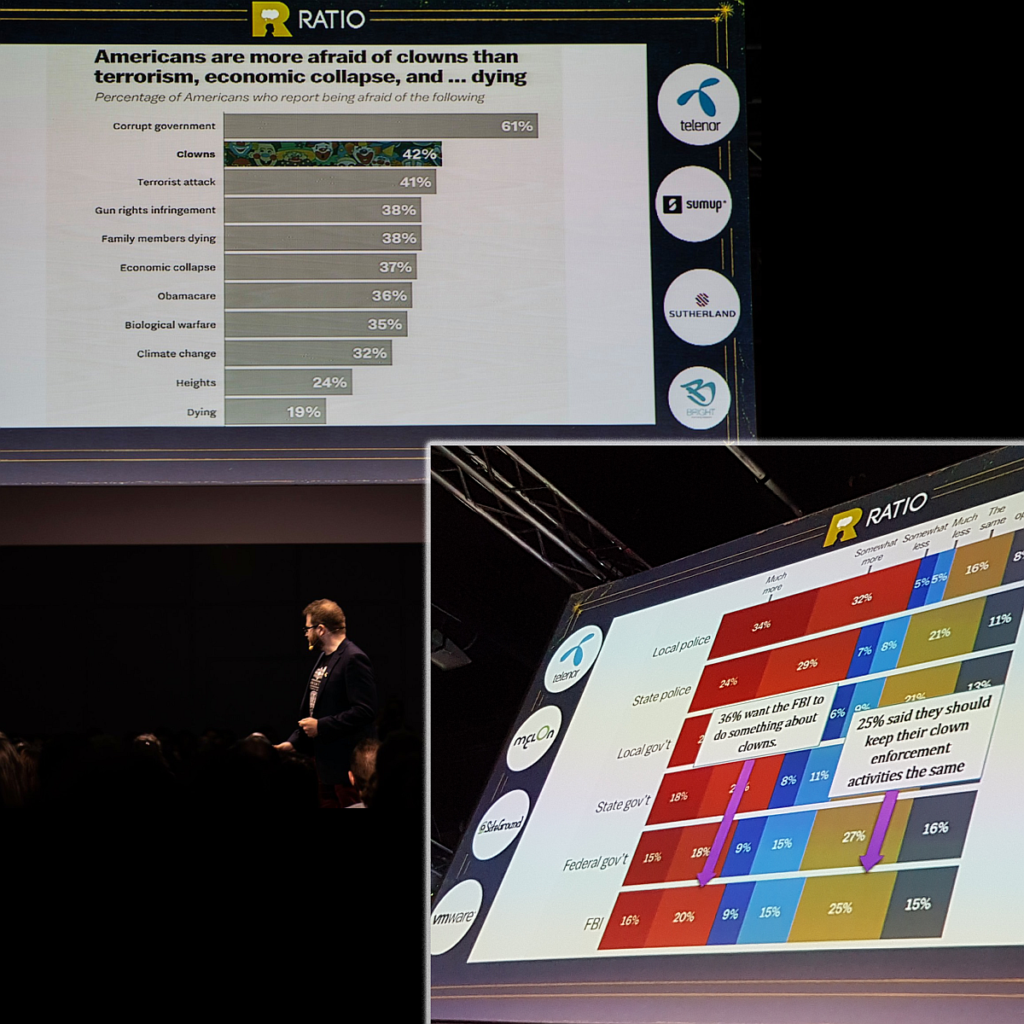
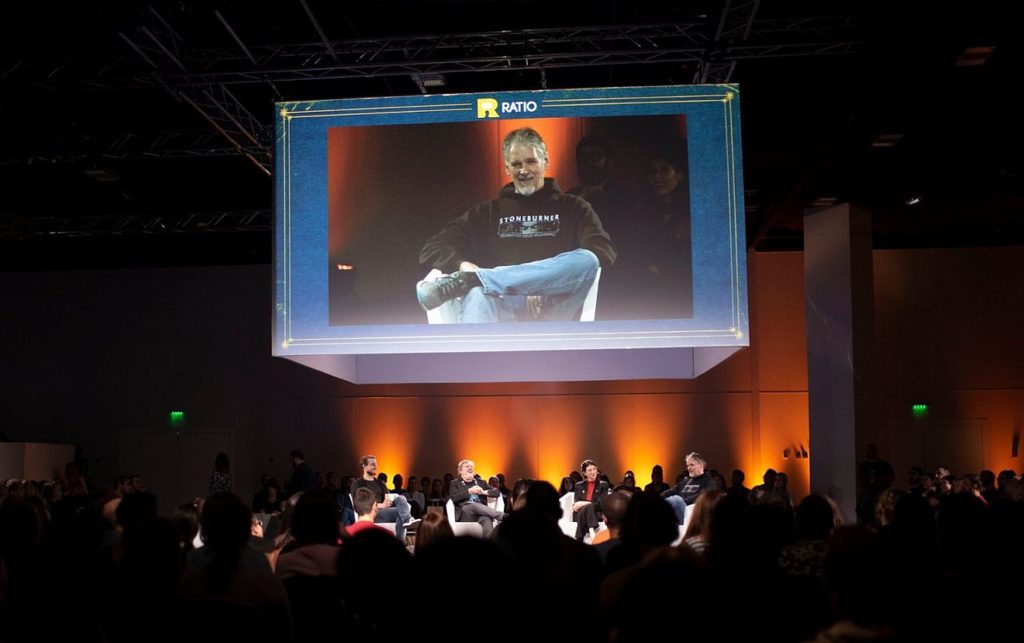

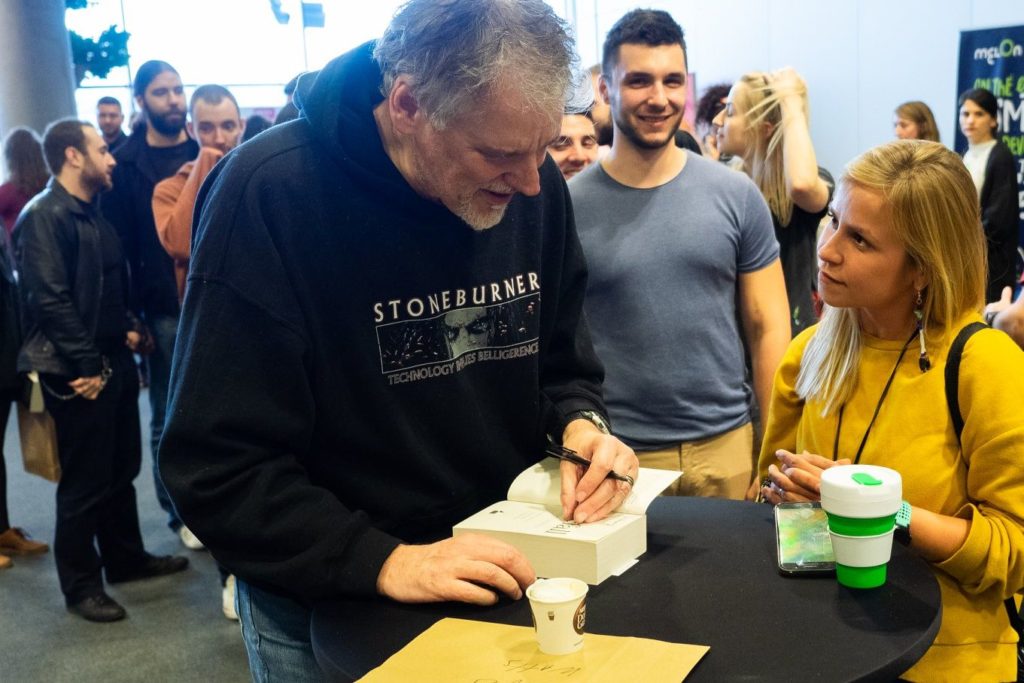
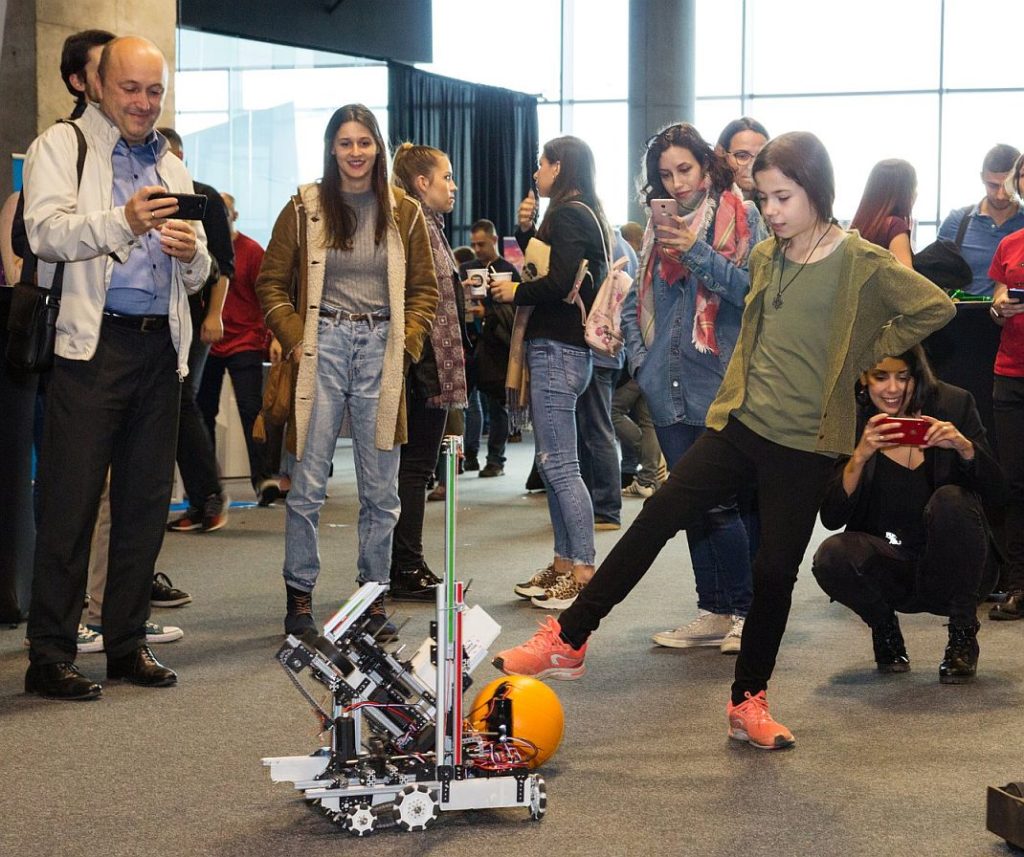
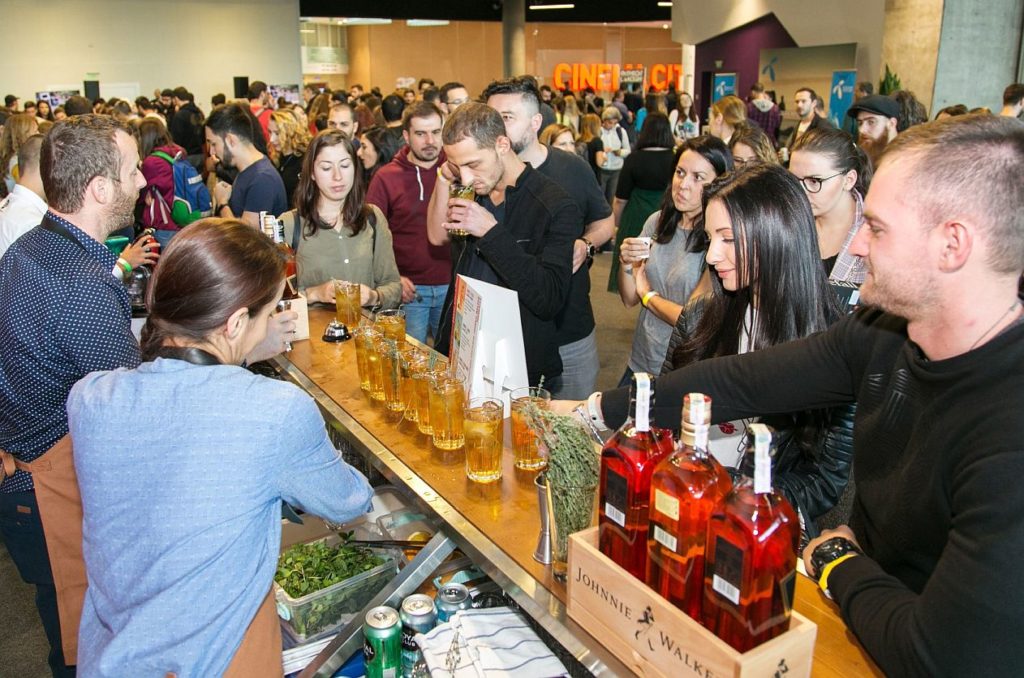









Just an fyi: Mike Birbiglia in his new Netflix special, “The New One” seems to side with you, vis-a-vis the ‘children question’!
Sounds awesome.
Is this up somewhere to watch?
So?
“Does anything bring you joy in life?”
“Hopepunk”.
A new one on me. Is this something along the line of “We could easily feed several times the world’s present population if we would just stop throwing out so much produce”? The sort of people who automatically class you as a racist/fascist if you even glancingly refer to Malthus?
Never mind, I’ll look it up myself. But if it is, these people are the biggest pains in the ass.
Caring about environmental issues is much more easier these days since it is definitely proven that human civilization can end itself in much shorter period of time than the nature would. On the other hand, modern definition of “civilization” is invariably tied to “liberal capitalism” that can envision the end of the environment or the human population, but cannot predict the end of itself. This is a mental deadlock of progressive thinking, “things can only get better” + “current system is the best we ever had” = “current system is the only one we will ever have”.
Holy shit, that guy is seriously jacked. A real-life Space Marine. I need to get some of those Myostatin blockers he is probably guzzling!
I’ve stopped reading science fiction, so maybe it isn’t the worst time to stop writing it. As you say, any SF that doesn’t aggressively deal with human/planetary survival scenarios over the next couple centuries is pure fantasy–and yet, I have no commercial interest in this. I can open any web browser to find out how fucked we are, so fictional disaster scenarios hold little novelty or informational value. Which just leaves writers to choir-preach their pet social issues to an already sympathetic audience, because anyone not sympathetic would have already filtered them.
No thanks. Maybe SF has always been a lie and an adolescent waste of time, it just took me this long to figure it out.
If it makes you feel better, though, I do credit you with finally shaming me into a fully plant-based diet, which I have maintained for over a year now (since your post on the IPCC report). So that’s something–a positive way your ideas have affected a change, no matter how small. And for my part, I lost an amount of weight most people would consider remarkable at my age, with fairly minimal effort. So maybe SF for realism is a good trade.
That stage setup sounds anxiety-inducing. Imagine having a bunch of people looking at your back while you’re talking.
Everyone seeems to talk about ‘genetic mods’ at this stage, everyone happy to forgot memes (I don’t mean those ‘viral’ pictures_with_text, but whole idea of ideas circulating via culture/language ..and other acts). May be hitting problem from this angle will lead to better results – because nearly everyone who can use any form of language _in theory_ can fight – unlike genetic/biotech manipulations, tied to some expensive equipment and anyway requiring some figuring out what is good and what is wrong and what to do about all this from subject(s).
So, may be SciFi/fantasy is not as useless as it may seem.
Another way to deal with overpressing issue is to make non-stop heavy humor out of it (of course such way has its own built-in danger).
As example of heavy humor I can recommend https://crosstimecafe.com/viewforum.php?f=8 (“Freefall”, long-running webcomic.. with some interesting commentators).
[…] Peter Watts talks about his recent visit to a con in Sofia, Bulgaria, and about the apocalypse, here. […]
This sounds strangely familiar: https://www.cbc.ca/news/technology/red-brittle-star-vision-1.5413917